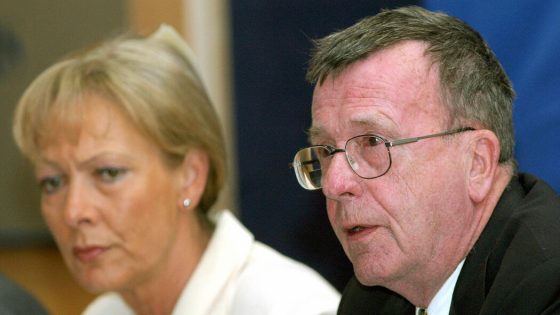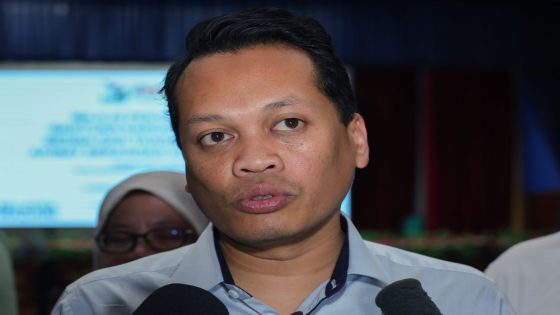Robert L. Barry, an American diplomat who was the chief U.S. negotiator in reaching a key military agreement with the Soviet Union near the end of the Cold War, died on March 11 at his home in Newton, Mass. He was 89.
His wife, Margaret Barry, said the cause was multi-infarct dementia.
Mr. Barry led a U.S. negotiating team at a security conference in Stockholm in the summer of 1986, when he and his Soviet counterpart, Oleg Grinevsky, reached an accord on troop inspections that American officials regarded as important in reducing East-West tensions.
The agreement established that NATO and Warsaw Pact members would have to notify each other at least 42 days in advance if they were planning military activities with at least 13,000 troops or 300 tanks. In addition, any country planning military maneuvers involving 17,000 or more soldiers would have to invite nations that had participated in the Stockholm conference to observe.
“We have taken an important step toward reducing the risk of military confrontation,” Mr. Barry told reporters after the accord was struck. The subsequent calm bore out his remarks.
It was the first East-West security agreement since the Strategic Arms Limitation Treaty on nuclear weapons signed by Jimmy Carter and Leonid I. Brezhnev in 1979.
Mr. Barry kept a photograph in his bedroom that depicted the celebratory vodka toast he shared with Mr. Grinevsky.
The Soviet Union was the principal focus of Mr. Barry’s long Foreign Service career, which also included postings as U.S. ambassador to Bulgaria from 1981 to 1984 and to Indonesia from 1992 to 1995. In 1971, he became one of the first Western diplomats allowed to live in what was then Leningrad, now St. Petersburg, as a consular officer.
In an unpublished memoir, he recalled that he would sometimes be followed by the K.G.B. when he drove around the city.
“Since I often got lost,” he wrote, “there were a number of occasions when I had to turn around and retrace my steps, causing considerable confusion among the followers.”
Late in life, Mr. Barry acknowledged that he missed that era, with its binary oppositions. “Some will find it strange that I should feel nostalgia for that simpler world,” with its threat of nuclear annihilation, he wrote. “For all that, I felt that I knew who the enemy was, and I was confident that we understood how to contain the threat.”
Robert Louis Barry was born in Pittsburgh on Aug. 28, 1934, to Louis and Margaret (O’Halloran) Barry. His father was a colonel in the Army Air Corps, and the family moved from base to base during World War II.
Mr. Barry graduated from Lansdowne High School, outside Philadelphia, and then attended Dartmouth College on a Navy R.O.T.C. scholarship. He graduated in 1956 with a degree in international relations and a focus on the Soviet Union and Eastern Europe, and received a James B. Reynolds Fellowship from Dartmouth to study at Oxford University. While there, he traveled to Hungary’s border with Austria in an effort to assist refugees during the 1956 Hungarian uprising against the Soviets. He spent three years in the U.S. Navy before joining the Foreign Service in 1962.
In later years, aside from his postings in Bulgaria and Indonesia, Mr. Barry was deputy assistant secretary for the Soviet Union and Eastern Europe from 1979 to 1981; chief operating officer for Voice of America from 1986 to 1988; and special assistant to Deputy Secretary of State Lawrence Eagleburger, coordinating assistance to Eastern Europe, from 1991 to 1992.
After his retirement from the State Department, Mr. Barry was head of the Organization for Security and Cooperation in Europe’s mission to Bosnia and Herzegovina from 1998 to 2001.
In addition to his wife, he is survived by his daughter, Ellen Barry, a reporter for The New York Times; a son, John Barry; and three grandchildren.
In an oral history for the Association for Diplomatic Studies and Training, Mr. Barry recalled the greatest moment of his career: when he negotiated the inspection agreement with the Soviet Union in Stockholm. It came at a time of personal tragedy for him and his wife, Margaret, who had just lost their 20-year-old son, Peter, in a fishing-vessel accident in Alaska.
Mr. Barry went to Stockholm anyway and held fast to his mandate. “The idea that they would have to open up their borders to on-site inspection to see about military maneuvers — or to check about whether reports of where their troops were stationed or where their exercises were being held — didn’t appeal very much to them,” he recalled. “But we kept the pressure on.”
Source Agencies




